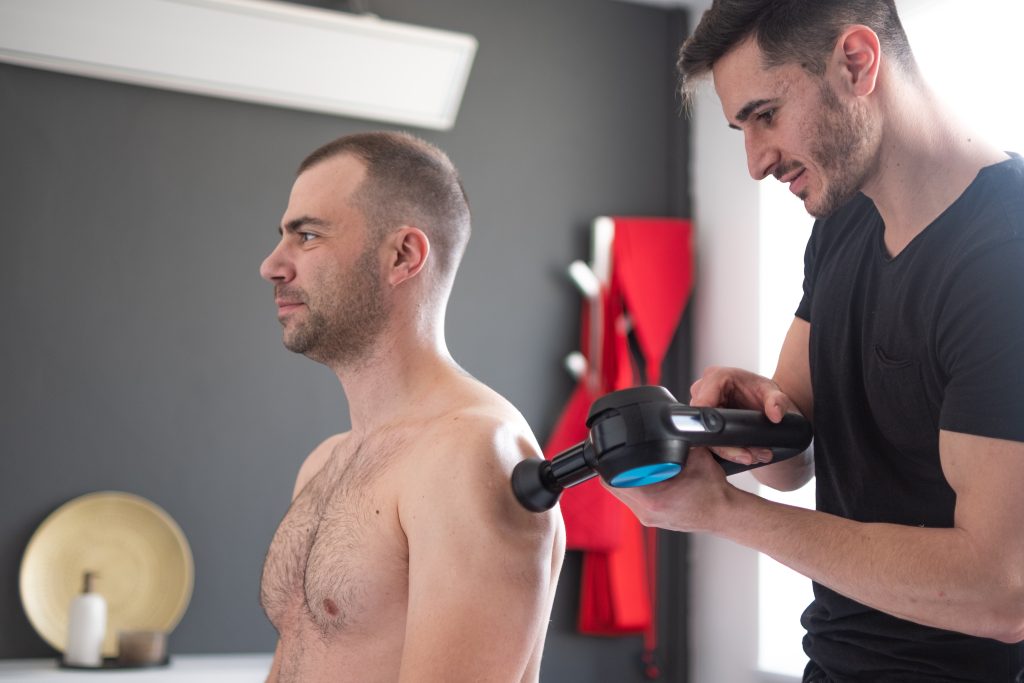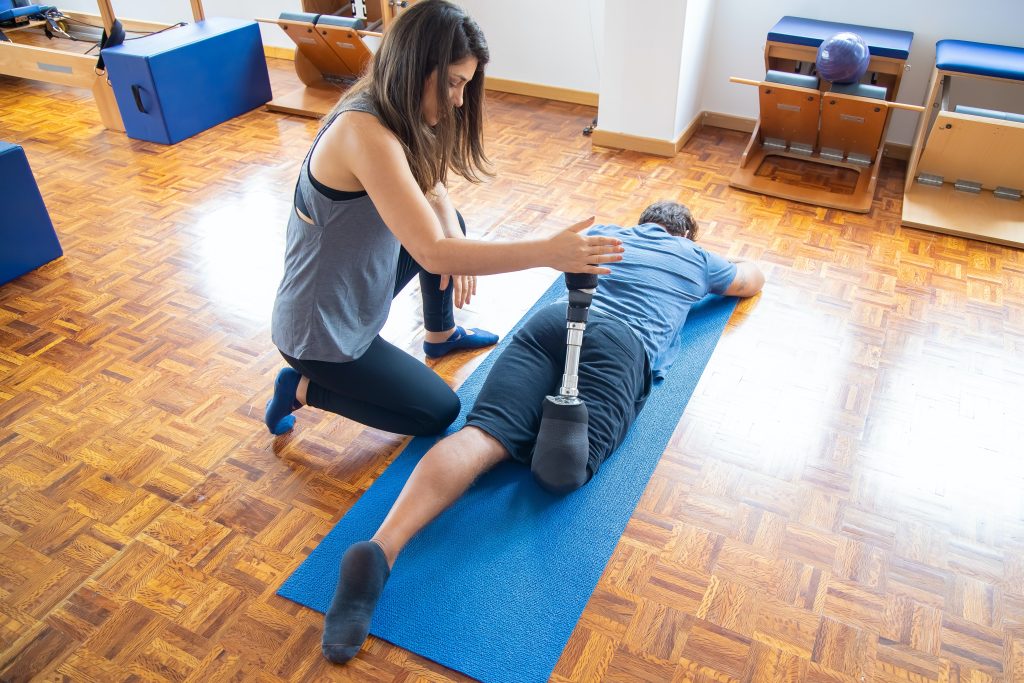
Physiotherapy, often known as physical therapy, is a satisfying and dynamic subject. It promotes mobility, restores function, and improves the quality of life for people with physical disabilities.
Aside from its core role in healthcare, physiotherapy offers a diverse range of work opportunities. You might not be familiar with them, and you should. These physiotherapy career options are specifically for people who want to make a difference in the daily lives of others.
In this article, we will look at some intriguing career pathways accessible in physiotherapy. These include specialization areas and prospects for advancement. Let’s find out!
Top 10 Physiotherapy Career Options: Your Next Specialization
Musculoskeletal (MSK) Physiotherapy

The musculoskeletal system involves the bones and their surrounding muscles, joints, ligaments, and tendons. Musculoskeletal physiotherapy means the analysis, treatment, and management of problems related to this system.
It is a subspecialty of physiotherapy with several job opportunities. If you are interested in MSK rehabilitation, you can explore the requirements for this career path and run with it. Here are some insights on the MSK Physiotherapy career path.
Outpatient Clinician

You can work as an outpatient physiotherapist. As one, you can offer specialized therapy to people with diverse disorders. It depends on the speciality of your choosing, like MSK. You’ll assess and diagnose patients, create treatment plans, and administer therapies, including manual therapy, patient education, and exercise prescription.
Outpatient clinics may specialize in certain areas. These include back discomfort, shoulder injuries, or hand therapy. By doing so, it allows you to gain skills in a specific area.
Sports Physiotherapist (Restoring Athletic Performance)

f you are passionate about sports medicine, athletics, or physical fitness, and want to help people with pain management and muscle strengthening, landing a job in physiotherapy or sports physiotherapy can be an exciting career path—especially if you understand how clinics define and communicate their unique selling points, which can help you choose the right workplace.. Athletes and sports teams work closely with physiotherapists to prevent, analyze, and manage sports-related injuries. They are critical in improving sports performance, implementing fitness programs, and offering rehabilitation services.
Athletes’ biomechanics are assessed by sports physiotherapists. Then, injury prevention measures are developed and rehabilitation programs are adapted for the individual demands of athletes.
They may work at sports clinics, fitness centres, or directly with sports teams. Either way, they can assist athletes in recovering from injuries, regaining strength and flexibility, and resuming optimum performance. Check here to read about a recent job appointment in the sports physiotherapist role.
Neurological Physiotherapist

Neurological physiotherapists work with people with diseases or traumas such as stroke, multiple sclerosis, spinal cord injury, or Parkinson’s disease. They use specialized procedures and evidence-based therapies to improve neurological function, independence, and quality of life. This is one of the physiotherapy career options that deal with the brain as well.
Physiotherapists who specialize in neurological conditions work to improve movement patterns, coordination, balance, and muscular strength. They are critical in neuro-rehabilitation, assisting patients in regaining functional abilities and adapting to persistent disabilities.
Clinical Physiotherapist

A clinical physiotherapist is one of the most popular and conventional professional choices in physiotherapy. In a clinical environment, these specialists analyze patients’ illnesses, diagnose deficits, and devise personalized treatment programs.
Clinical physiotherapists use several approaches to treat musculoskeletal, neurological, respiratory, and cardiovascular disorders. These involve manual therapy, therapeutic exercises, and modalities such as electrotherapy.
A clinical physiotherapist may specialize in orthopaedics, neurology, paediatrics, or geriatrics. Any specialization they choose will customize their knowledge to give focused treatment to people of all ages.
Orthopaedic Physiotherapist

As physiotherapy career options go, this one is known as the backbone of other physiotherapy subcategories. Orthopaedic physiotherapists specialize in musculoskeletal diseases as well. People who work in this field focus on strength training and such. They work closely with people who have had orthopaedic surgery, joint replacements, or fractures.
These specialists use innovative approaches such as manual therapy, therapeutic exercises, and assistive equipment. These ways increase mobility, reduce discomfort, and improve functional capacities.
Orthopaedic physiotherapists frequently cooperate with orthopaedic surgeons and other healthcare providers to offer their patients complete care.
Researcher and Educator

A career in research and education may be intriguing to people who are passionate about developing the discipline of physiotherapy. As a lucrative physiotherapy career option, physiotherapy researchers perform studies, analyze data, and contribute to evidence-based practices. These practices drive this profession’s progress.
Researchers often work at academic institutions, research centres, or healthcare organizations. They’re part of interdisciplinary teams to investigate new treatment methods, enhance patient outcomes, and shape clinical guidelines.
Some physiotherapists become educators. They pass on their knowledge and skills to future generations of aspiring physiotherapists. They get teaching roles at universities and various other training programs.
Private Practice and Entrepreneurship (Carve Your Own Path)

Starting a private practice or an entrepreneurial company is a realistic alternative for physiotherapists wanting independence and autonomy. Physiotherapists can provide specialized treatments, enhance their brand, and create a customer base by opening clinics.
This opportunity is one of the preferred physiotherapy career options when one wants to become a physiotherapist. Owners of private practices have the freedom to set their hours and develop their own treatment methods. They can also extend their services to appeal to specific demographics or specialized markets.
Improvements in telehealth and digital platforms have provided physiotherapists with new platforms and prospects. Online consultations, remote monitoring, and virtual rehabilitation programs enable physiotherapists to reach a larger audience. Not to mention, they provide patients with convenience and experiment with new therapy methods.
The Takeaway
Undoubtedly, a career in physiotherapy is an exciting and fulfilling path with several prospects. The physiotherapy career options vary immensely. You can work with athletes, contribute to research, take on leadership responsibilities, or start your own practice. In any speciality you choose, physiotherapy has a variety of career pathways to meet your interests and goals.
Physiotherapists make a difference in people’s lives. They encourage healing and rehabilitation, contributing to the progress of healthcare by pursuing a career in physiotherapy.



